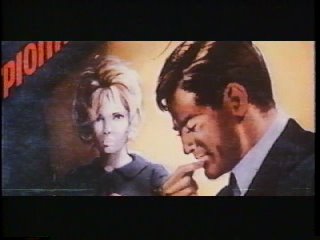Once, centuries ago, you died in the same world you were born into. The world changed, but slowly. Then it began to change more quickly.
The important thing is how much it changed during an individual lifetime.
First, people noticed that everything was changing. That was the nineteenth century, the era of progress. Then, in the twentieth century, they noticed that
everything was changing. The amount of change in a lifetime had become complete. The world you were born in completely disappeared during your life, replaced by another one. This was not mere progress, even when the change was for the better, and often it wasn't. Even when there was a net benefit, there was the old world dead, its wreckage washed up on the beach in "The Waste Land" and
Ulysses. And the new world coming? Utopia or dystopia? That was the modern experience. Modernism was the response.
And still the rate of change increased.
Why should that make a difference, once the amount of change in a lifetime had become complete? But it did. Not only did everything change, but it had time to
change again. In a
different direction.
Modern change was linear. It had authority. There was the old and the new. The present moment could be split into
the residual, the dominant, and the emergent. This new kind of change was different. In it, the new is soon old, and not in a linear way. There, standing in the shadow of the
new new, this new, the old of the future, is no longer the verdict of history upon the
old old; it lacks
finality. In a way, the death of the futuristic. This new kind of change is, to use the term that sums it up in one nuclear paradox,
post-modern. That which is in response to it is
postmodernism.
The first evidence of the postmodern I noticed was in politics, around 1980, when conservatives spun reaction as an emergent force, and liberalism and progressivism, seemingly emergent by definition, as residual -- old-fashioned, obsolete, in the process of being left behind. What was residual and emergent was now the subject of unlimited interpretation, no longer determined by a historical narrative. A moment of intellectual vertigo, epitomized by the claim that what I had thought was reality was just another religion, namely "secular humanism," that deserved no priveleges over the others.
Postmodern politics weren't inherently reactionary, but, at first, the reactionary kind stood out more clearly as something new: the election of Thatcher and Reagan, the Iranian revolution and Khomeini, the mass enthusiasm for the new pope, John Paul II. These did share a characteristic of postmodernity: the need for something unchanging, permanent, timeless, to cling to. I don't say that in a patronizing way. It's frightening. A world where everything is insecure.
Art, also freed from historical narrative, ranged through time and global space. I'm thinking of movies and pop music, but the same is true of high culture. In pop, the new thing was postmodern groups like Talking Heads and Blondie, deeply into revivalism and global sounds.
This essay began in my mind with a thought about two common words, "classic" and "quirky," that aren't obviously significant or connected with each other. I hear them a lot. I read them a lot in magazines. My thought was, that they are significant, connected, and very postmodern. Something -- a shoe, a screen persona, a building, a food -- is "classic" if it is self-contained enough to retain its effect in spite of the endless, corrosive change going on around it. Something, usually some art object like an indie movie, is "quirky" -- by implication,
merely "quirky" -- if it has an individual quality that deviates from the aesthetic dominant. Before postmodernization, such a work, if it was good, would have been emergent -- "advanced," "progressive." But the emergent, as a category, no longer exists. The aesthetic spectrum is no longer a line between past and future but a plane or space with a center, typified if not defined by the "classic," and an edge, occupied by, among others, the "quirky."
In postmodern politics, the argument over what is and isn't progress can be replaced by other, more substantial criteria -- fairness, say, or justice. Postmodern art is more problematic. Maybe we can say that it has to be invented by each artist, and that is as it should be.
Futurelessness has a great future. While the rate of change in the physical world may be slowed down by dwindling resources and negative consequences, the technology of
cultural change -- communications, knowledge, the information systems of the symbolic order -- is sure to expand. In other words, change is here to stay.






